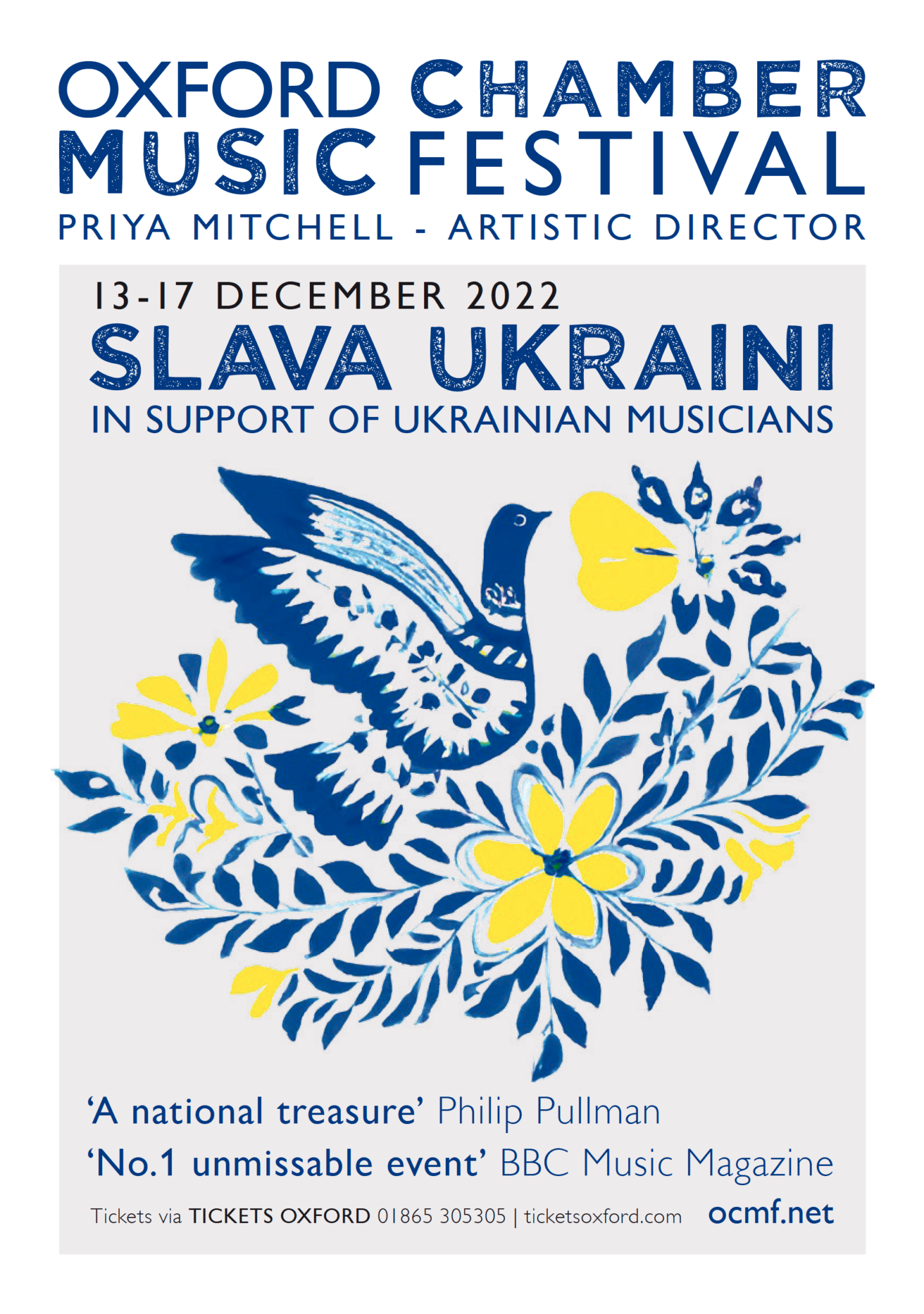Oxford Chamber Music Festival 2022

This year's Oxford Chamber Music Festival is the 20th anniversary of the Festival and it is dedicated to raising funds for musicians in Ukraine. It is running from 13-17th December with concerts at the Holywell Music Room and St Edward's School.
The programme features exciting music by Ukrainian composers and performances by some outstanding artists on the classical scene. The director Priya Mitchell is a soloist who has played with leading orchestras all around the world since her childhood in Oxford, when she attended the Yehudi Menuhin School.

On Thursday evening we were treated to a wonderful concert than began with Natacha Kudritskaya performing The Messenger, a piano composition by Valentin Silvestrov, a Ukrainian composer born in 1937. Simple, lucid and neo-classical, it felt like a plea for calm and reflection in a world torn by war and anguish.
She followed this with Dumka, by Rebecca Clarke (1886-1979), an Anglo-American woman composer who is very well worth discovering if, like me, you haven't heard of her before. A Dumka is a Slavic form that alternates lament with wild dance, familiar to us through the work of Dvorak and Janacek, and also found in Ukrainian music. Clarke's piece was warm, powerful, full-blooded romanticism, both attractive and appropriate to the theme.
Priya Mitchell and Timothy Ridout were the soloists in Mozart's Sinfonia Concertante for violin and viola K.364. This gorgeous piece offers everything that Mozart-lovers adore - a brisk Allegro opening, a divinely melodic slow movement with a searching dialogue between the two string soloists, and a boisterous rondo. This performance had such style and spirit, and such lush tones, it reminded me of the classic recording by David and Igor Oistrakh made probably fifty years ago. The programme notes call the slow movement "operatic". I wouldn't go along with that. It is too introspective. There is an interplay of two voices, yes, but they are mysterious contrapuntal entities, not stage characters. Their sympathetic interweaving ends by achieving understanding and hope despite the sombre setting.
Mitchell is a feisty performer, positively fizzing on stage with musical conviction. The very small orchestra nevertheless produced a genuinely Mozartian sonority.
In the second half, Natacha Kudritskaya returned to the piano and was joined by Corey Cherovsek (violin) and Claude Frochaux (cello) in Dvorak's Dumky Trio, a work that takes on new meaning now that we understand that the dumka form is found in Ukrainian tradition. What a fine performance this was, bounding with verve and energy! The alternation between legiac lamenting passages, rhetorical and full of rubato, and the contrasting frenetic dances, is compelling and begins to feel inevitable. We never want the cycle to end, but it does so in a blaze of energy.
This Festival is one of the highlights of Oxford's musical calendar, and the link this year to Ukraine makes it an event not to be missed by anyone who cares about either. It is running until the 17th December and I am told that there are still some seats available for Saturday's performance, when they are offering two tickets for the price of one.
See their website https://www.ocmf.net/ for full programme and buy tickets via
https://www.ticketsoxford.com